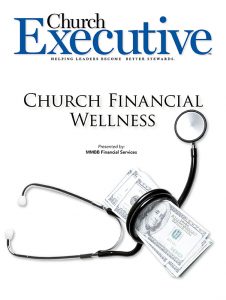
By Matthew D. Hoffman, CFP®, ChFC®
 When we think about estate planning, drafting a will, and getting your financial affairs in order, millennials aren’t the first demographic group that come to mind.
When we think about estate planning, drafting a will, and getting your financial affairs in order, millennials aren’t the first demographic group that come to mind.
Most people don’t start to think about this topic until they’re a little older and more established; they usually have achieved milestones such as marriage, homeownership and parenthood.
According to a recent study on Caring.com, nearly 80 percent of the younger generation seem unconcerned about the future, with only 22 percent of 18– to 36-year-old Americans having a planned will or trust. Two of the most common reasons for not planning were: (1) they felt they did not have enough assets to warrant making a will or doing some estate planning, and (2) they felt they still had time before they needed to make plans.

It’s no surprise that people in their 20s and 30s would not have estate planning at the top of their list of financial priorities. In their minds, the creation of legal documents — such as living wills, last wills and testaments, medical and legal powers of attorney, and trusts — are akin to speaking a foreign language. Most believe that you don’t need to work on these plans or documents until you reach your 50s or 60s. In a March 2017 article, USA Today reported that millennials (those born roughly between 1986 and 2000) would rather enjoy the present than prepare for the future. The millennial group includes individuals who are young professionals and those just graduating from college or seminary. Many of them might be in the process of repaying student loans while they work towards professional career goals and others are attending college after postponing it. They might not have a lot of money now, but this is the time in their lives when it’s important to start saving and investing for the future. Like adults in their 40s and older, they too should have a basic estate plan in place in the event of an emergency or untimely death, which can happen at any age.

Basic estate planning tools for millennials might include a will, trusts, life insurance, employee benefit plans, and healthcare directives and powers of attorney.
The will allows the individual to name a personal representative to handle his or her estate and can name the guardian for his or her children if both parents should die. This can be critical for millennials who are parents of young children. A will also provides for the disposal of sentimental assets to family or friends, and is the place to state funeral wishes.
The trust is a useful instrument for managing the assets of an estate. A trust may be created while still alive or contained within a will.
Life insurance provides for a family in the event of death by replacing lost income and covering additional expenses resulting from the death.
Employee benefit plans might include a retirement plan and group life insurance benefits. If participating in either plan, be certain that the beneficiary designations name the correct person or entity, as these are not governed by a will.
Healthcare directives and certain types of Powers of Attorney may ensure that someone who you have chosen has the authority to act on your behalf if you are incapacitated due to an accident or sudden illness.
Stop and think
The first step in estate planning for millennials (or anyone) should be to take some time to ask yourself the following questions:
What happens if . . .
Who should receive my assets? Spouse? Siblings? Friends? Charity?
Who should be the executor of my estate?
There are no right or wrong answers; they are personal and specific to the individual. Ideally, estate plans should be established when millennials are young adults, and then reevaluated throughout their lifetime as priorities and life circumstances change.
The Caring.com study also shows overall, that Americans need to take estate planning far more seriously than they do presently, and they need to get started earlier in life. Just one in five millennials say they have a will or living trust.
Creating a will is a good first step to take, and can offer a sense of peace of mind regardless of your age. Most local attorneys can draft a Last Will and Testament at an affordable rate, and there are now many low-cost do-it-yourself options available. Also, a Certified Financial Planner™
professional will be able to assist you in the estate planning process.
Don’t put off making decisions that will affect how and where your assets will be allocated. Take the first step toward getting your affairs in order.
Matthew D. Hoffman, CFP®, ChFC® is Chief Client Services Officer and is also an officer of MMBB serving as Corporate Secretary. Hoffman has worked extensively in the financial services industry. Prior to joining MMBB, he was a vice president at JPMorgan Chase and a financial advisor in the private client group at Merrill Lynch.


